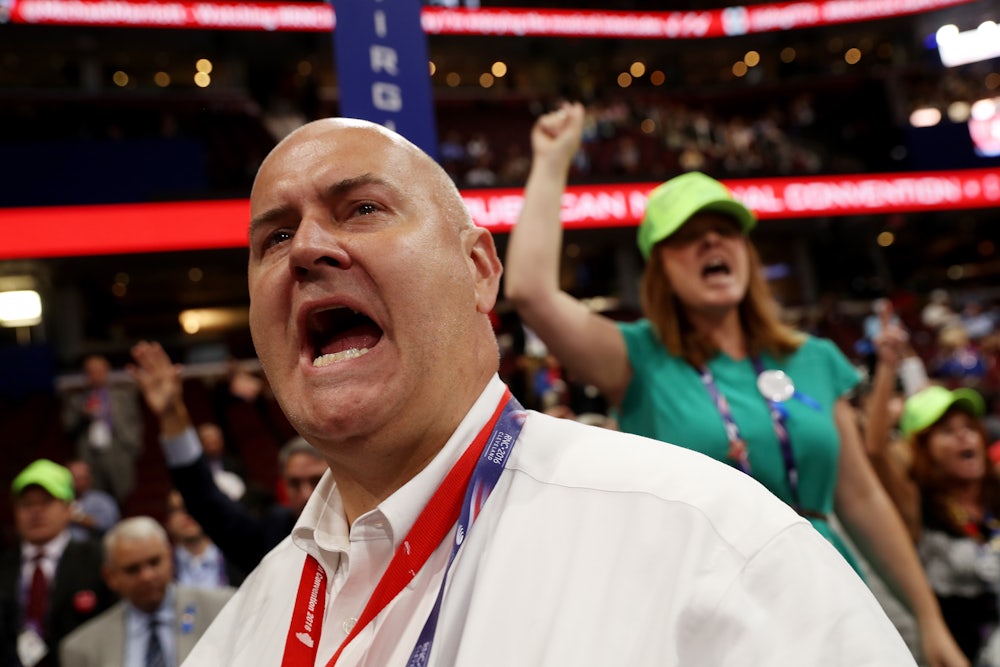The RNC began at 1 p.m., but its first three hours were relatively quite. Aside from Reince Preibus, the speakers were people no one has heard of, reading speeches in the halting tone of someone running for eighth grade class president. There were protests outside the convention, but things were calm. The biggest highlights of the first three hours were Eric Andre messing with Alex Jones and the RNC house band, led by SNL’s G.E. Smith, which played Holiday Inn bar mitzvah versions of misogynistic sex songs like AC/DC’s “You Shook Me All Night Long” and The Faces’ “Stay With Me” to a hardly captive audience. (Bowie’s “Station to Station,” a 10-minute ode to cocaine psychosis, was also dragged out.)
Then, shortly after 4 p.m., all hell broke loose. Delegates opposed to Trump’s nomination acquired enough signatures to force a roll call vote to “unbind the delegates,” which would allow delegates to vote yay or nay on Trump as the nominee and—possibly—select a new nominee for president. Politico reports that the delegations from at least nine states submitted signatures calling for a roll call vote, but Rep. Steve Womack—who at one point left the stage for a considerable period of time—“declared the rules approved and moved on.” When Womack appeared for the second time, he informed the delegates that three states had withdrawn their support, presumably after considerable arm-twisting from Trump’s campaign. While this was happening, the Colorado delegation walked out, the floor devolved into shouting between pro- and anti-Trump delegates, and former New Hampshire senator Gordon Humphrey referred to Trump’s supporters as “brownshirts.”
BREAKING: Chaos on RNC floor as anti-Trump delegates fail to force roll call vote, storm out https://t.co/bNf1rEwUyX pic.twitter.com/PKFrwcizKs
— CNBC Now (@CNBCnow) July 18, 2016
One of the strangest things about the surreal scene in Cleveland is that any roll call vote would almost certainly be unsuccessful: It is, in other words, a purely symbolic vote that would allow Trump’s opponents to voice their objections and vote their conscience, but would likely accomplish little else. Of course, any dissent is a bad look during a convention—the time when the party is supposed to symbolically come together—which helps explain why Trump’s team is working so hard behind the scenes to suppress the vote.
